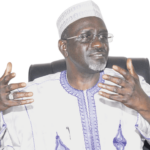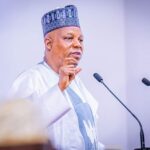Sixty members of the House of Representatives have sponsored three bills proposing alterations to the Nigerian Constitution 1999 (as amended) to transition from the current presidential system to the parliamentary system of government by 2031.
The three bills were introduced on the floor of the House on Wednesday by the Clerk of the House for first reading.
They were sponsored by the House Minority Leader, Kingsley Chinda and 59 other members.
The bills are the Constitution of the Federal Republic of Nigeria, 1999 (Alteration) Bill, 2024 (HB.1115); Constitution of the Federal Republic of Nigeria, 1999 (Alteration) Bill, 2024 (HB.1116) and Constitution of the Federal Republic of Nigeria, 1999 (Alteration) Bill, 2024 (HB.1117).
Out-of-school kids: Reps ask govs to order compulsory enrolment
Reps want telemedicine regulated in Nigeria
Briefing journalists after the plenary, the lawmakers said they came together across party affiliations and regional backgrounds to present the bills proposing constitutional alterations to pave the way for the transition of the system of government.
Abdussamad Dasuki, who spoke on behalf of the sponsors, said the proposed alterations, when passed, would significantly impact the national political landscape.
“Over the years, the imperfections of the presidential system of government have become glaring to all, despite several alterations to the constitution to address the shortcomings of a system that has denied the nation the opportunity of attaining its full potential.
“Among these imperfections are the high cost of governance, leaving fewer resources for crucial areas like infrastructure, education and healthcare, and consequently hindering the nation’s development progress, and the excessive powers vested in the members of the executive, who are appointees and not directly accountable to the people.
“That (parliamentary) was the governance system of the First Republic, a period when legislative and executive powers were exercised by the representatives of the people in parliament and in the executive, and by the nature of the system, these representatives were accountable to the people. For six years while it was in operation, the system worked for the country,” he said.
The lawmakers noted that return of Nigeria to the parliamentary system would make government accountable, responsible, responsive, and ultimately less expensive.

 Join Daily Trust WhatsApp Community For Quick Access To News and Happenings Around You.
Join Daily Trust WhatsApp Community For Quick Access To News and Happenings Around You.


